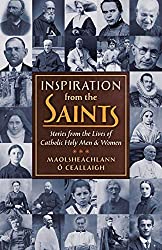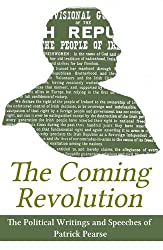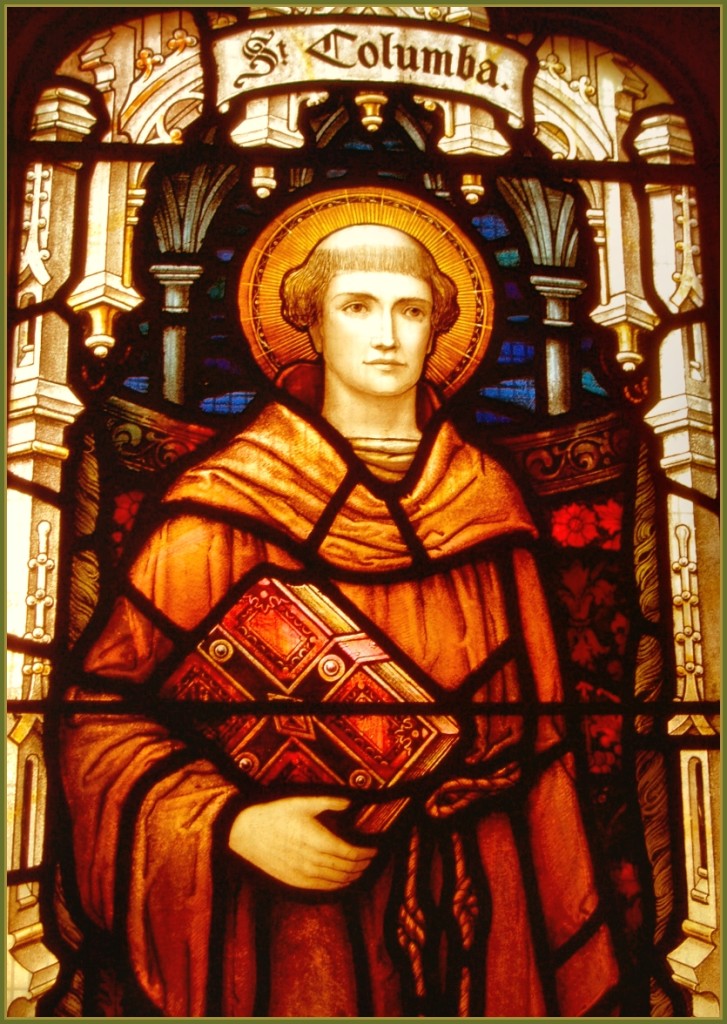
Today is the feast of St. Columba, second patron of Ireland and Apostle of the Picts in Scotland.
He was a man of northwest Ireland, born in 521 in Gartan, County Donegal, later dying on the Scottish island of Iona, on June 9th, 597.
St. Columba is the patron Saint of Derry, where he founded his first Monastery. Today, in that place, now stands the beautiful St. Columba’s Chapel, Long Tower.
I am blessed to live in the Derry diocese which spans Donegal, Derry and Tyrone and thus I regularly travel through the land that he walked long ago. And I regularly pray in and go to the Latin Mass in the Long Tower church.
All this, I cannot help but feel, has served to foster a deepened appreciation for this holy man and his spirituality.
St. Columba was baptised Colm, meaning ‘dove’. Cille, ‘of the church’, was later added to his name, for he dedicated his life to the Christian faith.
As his name implies, his spirituality contains a purity, a stillness, like a white light pouring down from heaven, the light of the Holy Spirit. Added to this, is an asceticism, which aspires to reach for the heights, continuously focused towards God. I imagine St. Columba already lived in the heavenly realm.
His penances were extreme. He ate little and slept on a hard board with a stone for this pillow. In Ulster, he is often depicted as clean shaven, with the typical Irish style tonsure. And, for whatever reason he left Ireland for the island of Iona, he did so with total faith in God.
Many years ago, a dear friend took my husband Roger and myself on a trip to Iona, Scotland, where St. Columba founded his famous monastery. And from which he converted the Northern picts to Christianity.
Iona is an incredibly special place. Again, there is an atmosphere one can only describe as heavenly.

It is as though the island is bathed in a soft light of pastel hue, exuding a spiritual nature, beyond this world. The isolation, the solitude and the deep stillness of the island add to this sense of being in another world.
There is also a timeless eternal quality, which puts one in touch with the ancient Christianity that St. Columba brought to the island. This quality seems integral with the nature there, as though the wind, the sea, the light all communicate its treasures.
So how did Colmcille come to found his monastery on Iona, when he was born and raised near Derry?

St. Columba came from a wealthy family of Royal Irish blood. He received a good education. Hungry for learning and deeply devout, he was sent to a monastery at Movilla to continue his studies.
There, under the tutelage of St. Finnian, he received the tonsure and took the habit. He left Moville a deacon and spent some years in Leinster. Later, he studied under another St. Finnian, at the monastery of Clonard.
By this time, Christianity was flourishing in Ireland. The study of Latin and theology was drawing hoards of young men, attracted to the monastic life. Ireland was truly becoming the land of Saints and scholars for which it is so well known.
Apparently, the scholars at Clonard numbered 3,000. This St. Finnian had studied at the Welsh school of St. David. Of course, this in turn influenced St. Columba, who was ordained a priest at Clonard. There he became one of what was known as the Twelve Apostles of Ireland.
In the year 544, Ireland was struck by plague, and the monks dispersed. St. Columba returned to his native land of Ulster, where he founded his very first monastery in Derry. Later, he would also found the other famous monasteries of Durrow and Kells (which monastery, of course, later produced the famous Book of Kells).
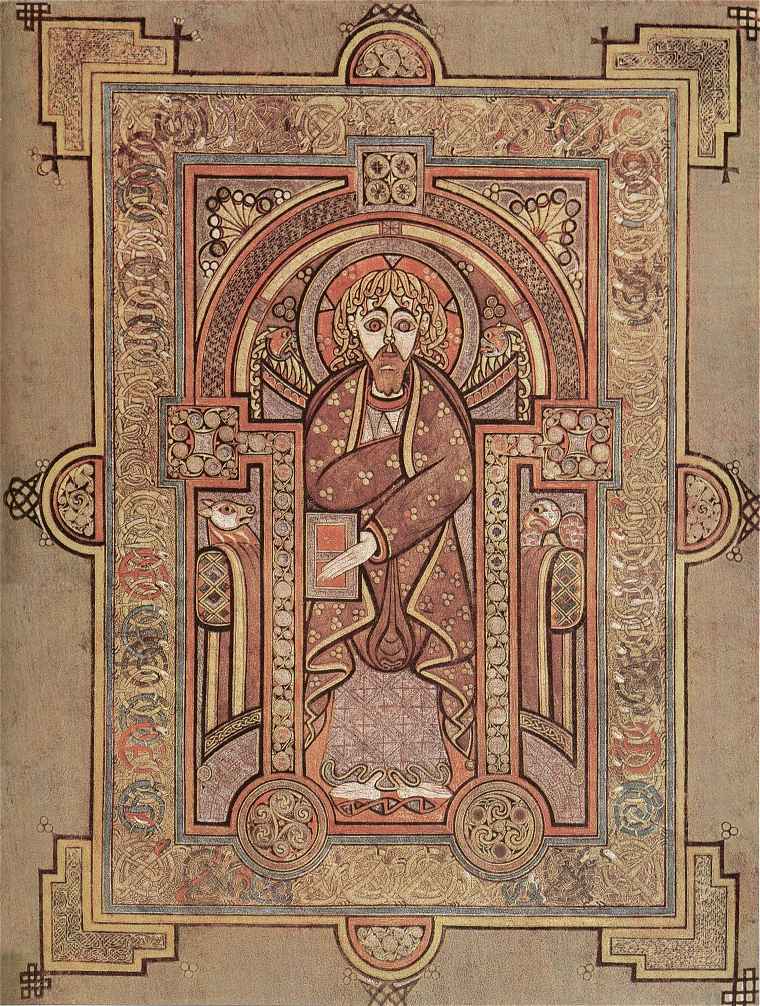
There are numerous accounts as to why Colmcille left his beloved Ireland for Scotland. These accounts entail three main explanations. Perhaps, there are aspects of truth in each of them, shedding light on the saint’s character.
The first explanation points to a particular type of asceticism, indicative of the Irish; namely white or green martyrdom. Many Irish saints chose such martyrdoms, whereby they lived extreme forms of penance, such as relinquishing their homeland. The second explanation speaks to a strong desire to evangelise – in this case, the Picts.
The third explanation, however, is rather different. It refers to the claim that, due to an extremely strong will, the saint tragically led many to their death.
St. Columba was apparently an incredibly fine calligrapher. According to one account, he borrowed a Psalter from St. Finnian of Movilla Abbey and was so moved by its beauty, that he secretly reproduced a copy of the book for himself.
His actions were discovered and St. Finnian stated claim over the copy. For St. Columba had neither asked nor received permission for this work. Yet he was adamant that the book was his. This conflict resulted in battle. According to this tradition, two battles were fought and many lives were lost.
Blaming St. Columba for the tragic loss of lives, due to his wish to possess the copied Psalter, a synod of clerics and scholars threatened him with excommunication. But according to this account, St. Brendan of Birr stood up in Colmcille’s defence. Exile was decided upon instead.

Yet another tradition declares that the death of so many, weighed greatly on Colmcille’s own conscience. And subsequently, he decided upon his own penance – that of exile.
Another documentation of St. Columba’s journey to Iona, relays that it was Colmcille’s confessor who, upon hearing his confession, after the battles and subsequent deaths, suggested exile as an appropriate penance.
This type of martyrdom was common to the Irish saints, who often drove themselves away from their homeland, as a form of penance, in order to suffer for the greater glory of God.
The final account is taken from the Vita Columbae (‘Life of Columba’), written by the ninth Abbot of Iona, Adomnan. It was compiled a century after the saint’s death, from records of his life, kept by the monks. This account simply says that St. Columba left Ireland because he wished to be ‘a pilgrim for Christ’.
Now, as I say, each of these stories may contain elements of truth.
Certainly, it was as ‘a pilgrim for Christ’ that Colmcille departed from Ireland. He set sail with twelve monks in a small reed woven currach, lined with hide.
And they landed on the west coast of Scotland, at Kyntire and were soon to become caretakers of the island of Iona. There, St. Columba and his twelve, established the great Abbey of Hy.
As Abbot of the Monastery, St. Columba became the Apostle of the Picts, converting the north.
He astonished these Scottish peoples by his holiness, preaching, miracles and gift of prophecy. For as Adomnan says of Colmcille, he was‘angelic in appearance, graceful in speech, holy in work’. And he possessed:
A holy joyousness that ever beamed from his countenance [revealing] the gladness with which the Holy Spirit filled his soul.
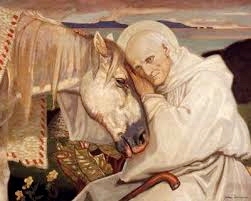
And as with many Irish saints, Colmcille displayed a deep love and rapport with nature.
There is a lovely story, whereby St. Columba prophesised his own death. It was the Sabbath and he told his fellow monks that his Sabbath was come, his time of departure, to the Lord.
As Colmcille sat down, to rest his weary, aching body, the monastery’s work horse approached him. It lay its head upon the saint’s shoulder, as though to console him and to wish him farewell. They remained there together for a short while.
Seventy-five years of prayer, mortification and fasting were almost at an end. The north of Scotland was converted. Monks, trained by St. Columba had travelled southwards, setting up monasteries and converting the northern English. Iona was becoming the great place of pilgrimage it has remained for centuries.
Colmcille made his way to the chapel, blessed his fellow monks and took his leave, expiring right there at the foot of the altar.
And I think it is extremely fitting at this time, to petition this great saint of Ireland to prayers for the rekindling of the faith in this land.
St. Columba, pray for Ireland.
St. Columba, pray for the faith.
St. Columba, pray for us.
Foreword for Monarchy by Roger Buck
Buying Books at Amazon Through These Links Gives Us a Commission. This Supports Our Apostolate. Thank You if You Can Help Us Like This!





